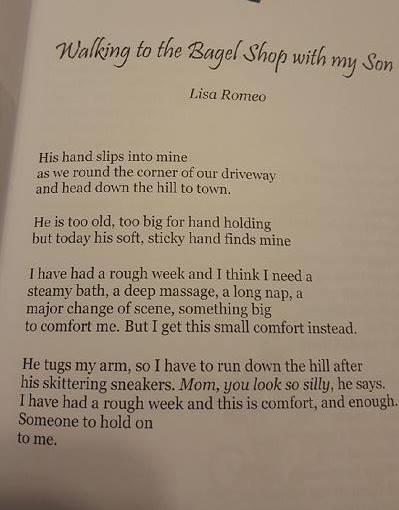Before
the day gets away from me, and it's 2017, and I forget how much I like tied-up
endings (in life, if not in prose), these are my thoughts, post-shower,
pre-breakfast. I use the word "should" not in the bullying,
guilt-inducing way, but in the prodding, goal-directed, self-to-self pep talk
way. Sort of.
I
should write a final blog post for the end of the year.
I
should go buy the dessert I'm expected to bring to tonight's party.
I
should finish my office decluttering, the day-after-Christmas project that always
stretches to just before dinner on New Year's Eve.
I
should finish my January and February submission calendar.
I
should write down my *I Did It List* for 2016, the one that's been swirling in
my head for a month, the one I urge every other to undertake, the one I've been
avoiding because OUTSIDE of my little writing world, the year was, in some ways
for my own family, for friends, for the country, as Queen Elizabeth once called
1992, "an annus horribilis."
I
should help my husband put together that new Ikea file cabinet for my office,
but since I stink at almost all DIY projects that do not involve words, I'll
leave it to him and my son.
I
should hit SUBMIT on my first piece of short fiction I told myself I'd finally
send out into the publishing world this year. (But my nonfiction soul is waging
a loud and occasionally snarky "But is it really any good?" and
"Who says you can write fiction now?" fight).
I
should finalize the two syllabi for Spring semester. Or at least write down the
day next week when I'll do it.
I
should write a note or at least a tweet to that writer whose finely written nonfiction
narrative piece I just read in a nice journal, and tell him so. Because it's
something I always mean to do and often forget to do, and because I know what
it's like to be that writer, hearing something nice about something you've
written and wonder if anyone will appreciate. (UPDATE: between drafting this
post and proofreading it, I did this. I feel better already).
Finally,
I suppose I should...fill and organize that new filing cabinet; re-order all of my office
bookshelves so the newly acquired books aren't stacked in a heap; bring my clip
file up to date; get my tax info ready; overhaul my blog; finish reading the
three books I'm in the middle of. Nah,
just kidding. I'm not doing those six things at all!
But
all the rest? I'll be doing all of that today. Not because I should, but
because I want to and my writer's mind won't let me rest until I do and because
I promised myself that once I do all of this, I can go to that party tonight
and feel a little bit lighter. Until I sample the dessert I'm going to buy.
Hope
your New Year's Eve works out just the way you want. See you back here in 2017.
Oh,
and because I forget to do this last week, here are the most popular posts of
2016:
Happy New Year !
Images - all Flickr/CreativeCommons: Lights:-NicMcPhee/UnhinderedByTalent; Tacks -HDValentin.
























